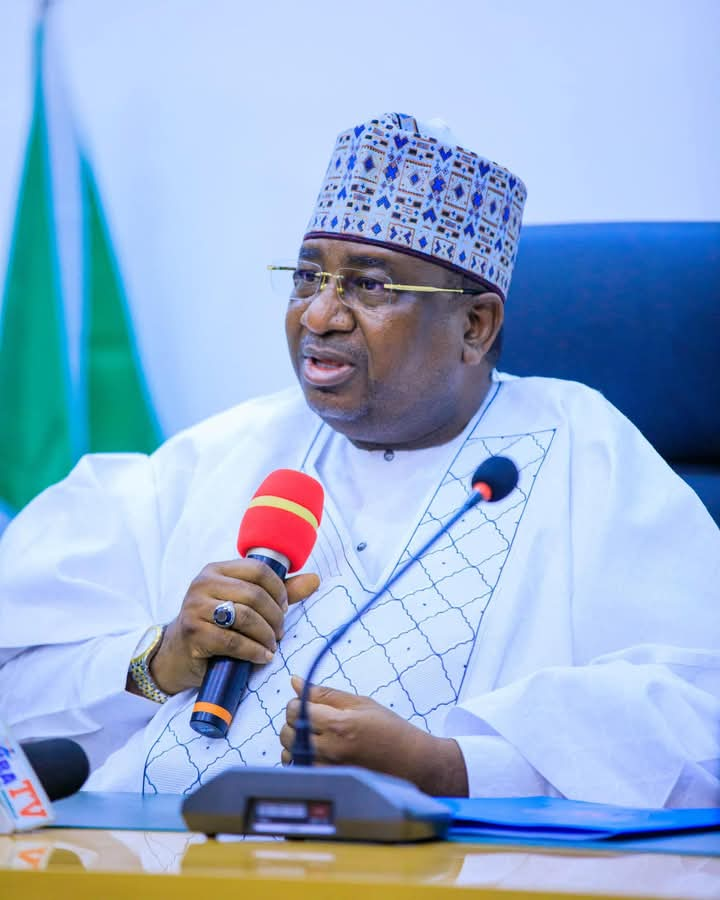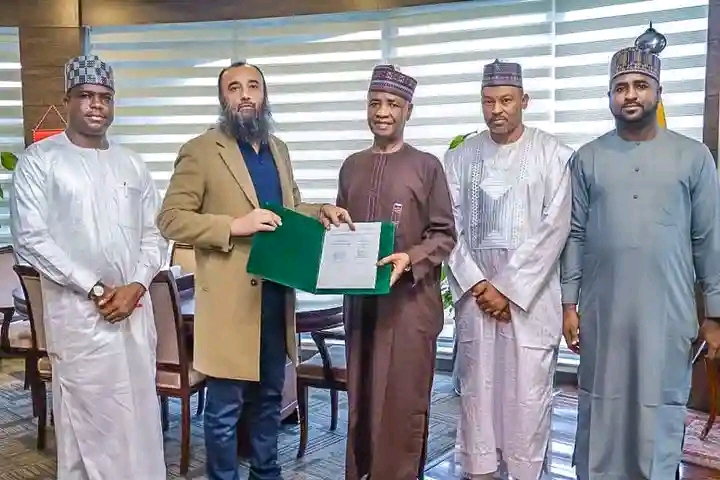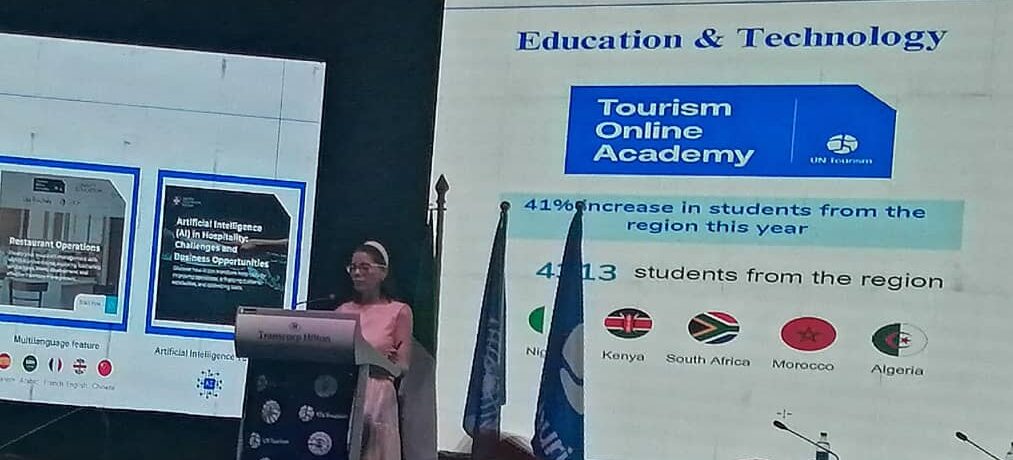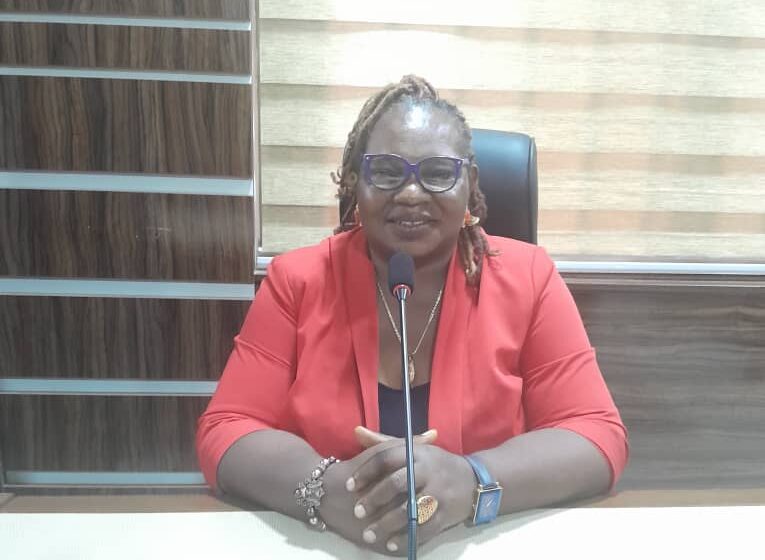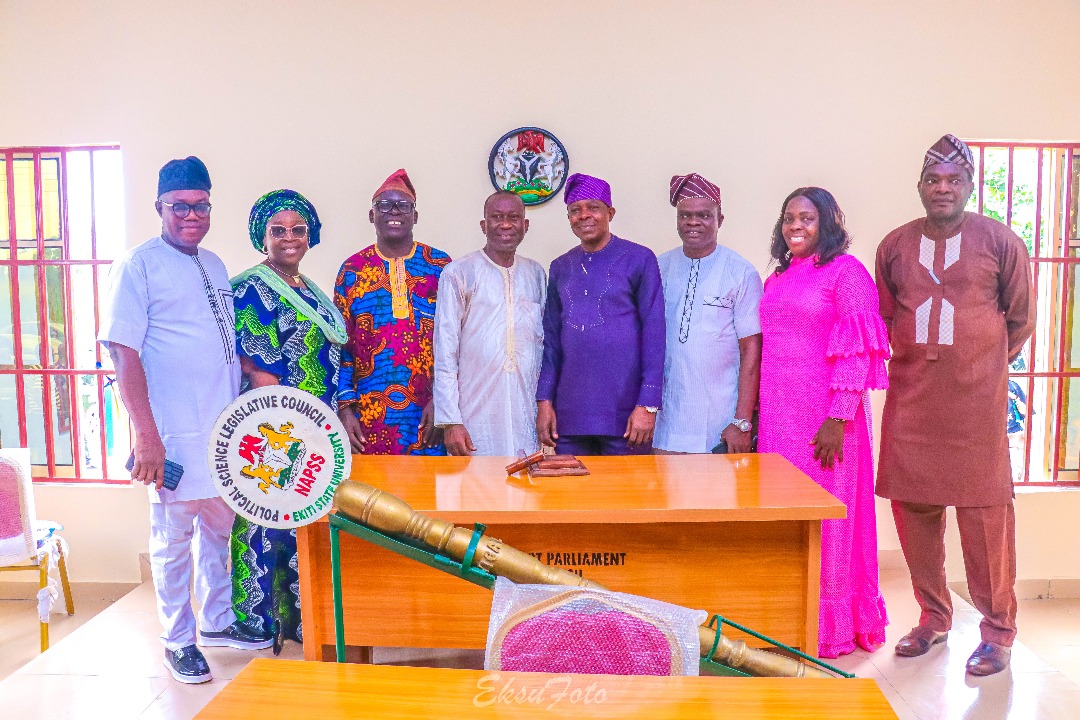By: Goodluck E. Adubazi, Abuja.
At the 68th CAF, UN Tourism Regional Commission for Africa, the United Nations Tourism Executive Secretary, Ms. Natalia, said AI is projected to contribute 1.2 billion dollars to Africa’s GDP by 2030. She also stated that over 2.6 billion people are still offline and not using the internet.
Speaking on the second day of the conference, the Honourable Minister of Arts, Culture, Tourism, and Creative Economy, Hon. Mrs. Hannatu Musa Musawa, highlighted the role of tourism in promoting cultural understanding, driving economic growth, and fostering unity in Africa.
The Minister emphasized the importance of tourism in fostering unity and promoting economic development across the continent.
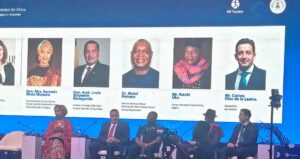
In her welcome address at the 68th CAF, UN Tourism Regional Commission for Africa, Minister Musawa highlighted the potential of tourism to bring people together and promote cultural appreciation.
“Tourism is a way that we can bring unity and understanding to our different countries and communities,” she said. “When people come to our community, whether through international or domestic tourism, it’s an opportunity for them to experience and understand our culture.”
The Minister also noted that tourism can drive economic growth and create jobs, particularly in local communities. She called for increased investment in tourism infrastructure and urged governments to prioritize the sector in their development plans.
The 68th CAF UN Tourism Regional Commission for Africa, themed “Boosting Social Impact and Education in Tourism through Innovation and AI,” was held from June 11–13, 2025, at the Transcorp Hilton, Abuja.
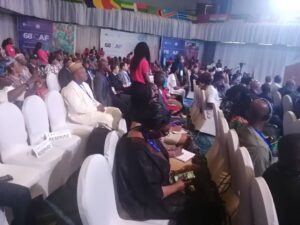
In a keynote address, the UN Tourism Executive Secretary, Ms. Natalia Bayona, commended Nigeria and described the country as a strong economy, noting that Africa needs to leverage technology to drive tourism growth.
Ms. Bayona, who delivered the keynote address, discussed advances in digital transformation in Africa and highlighted the importance of innovation and artificial intelligence in the tourism sector.
She noted that Africa is home to some of the world’s top innovators, with countries like Mauritius, Morocco, and South Africa leading in technology.
She emphasized the need for the tourism sector to leverage technology to enhance visitor experiences and boost economic development.
The Executive Secretary also discussed the four digital revolutions in tourism—from the creation of the internet to the current artificial intelligence revolution. She highlighted the potential of AI to personalize travel experiences and make tourism more accessible.
At the thematic conference on boosting social impact and education in tourism through innovation, AI, and the creative industries in Africa, Ms. Bayona said Nigeria is a strong economy and a leader in digital transformation.
She spoke on the advances and vision of the digital agenda in Africa. “Nigeria is a strong economy and one of the main leaders in digital transformation in Africa,” she said.
“I have a presentation today to talk about where the world stands in terms of technology, where Africa is, and how UN Tourism can guide the digital agenda for the region. Let’s begin with a global overview.”
She continued: “I want to start by discussing the innovation leaders in different global regions. In the Americas, the top leader in high technology is the United States, followed by Canada and Brazil. In Europe, Switzerland ranks first, followed by Sweden and the UK. In Asia and the Pacific, Singapore leads, followed by the Republic of Korea and China. In the Middle East, the UAE is first, followed by Saudi Arabia and Qatar.
“And last but not least is Africa. According to the Global Innovation Index by WIPO, the top innovators in Africa are Mauritius, followed by Morocco and South Africa. When I saw this map for the first time, I noticed that the most developed countries are leading in innovation. It clearly shows that mature destinations are driving the technology revolution.”
“Innovation is progressing rapidly, with global spending on artificial intelligence expected to reach 337 billion dollars this year. However, 2.6 billion people remain offline and are not using the internet. The digital agenda is advancing, but access is still unequal. In tourism, we have seen several revolutions.”
“The first revolution in tourism’s digital agenda occurred between 1960 and 1990, with the birth of the internet and websites that allowed destinations to promote themselves widely and democratically.
“The second revolution occurred between 1994 and 2005 with the rise of online travel agencies like Booking and Expedia, making travel more accessible and affordable.
“The third revolution, which I personally witnessed as a millennial, took place from 2008 to 2020, with the rise of startups like Airbnb, which introduced new ways to travel and explore destinations.”
“Today, we are in the fourth revolution—the artificial intelligence revolution. Originally developed for military purposes after World War II, AI is now widely used in tourism and other sectors. It supports hyper-personalization and helps address challenges in the tourism sector.”
“AI tools like ChatGPT can assist travelers with translations and itineraries. For example, I recently used ChatGPT in Baku to communicate with a taxi driver. The tool helped bridge the language gap. It’s also useful for planning vacations and accessing personalized travel suggestions.”
“I have been to more than 100 countries, and AI has helped enhance my travel experiences. Technology is not the solution to everything, but it is a tool that can help us improve human capability and decision-making.”
She concluded, “We still have a lot to do to transform tourism in Africa, but with innovation and commitment, we can achieve significant progress.”



